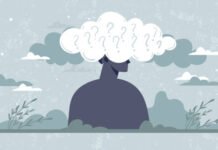
Despite being a long-term issue, there’s still a stigma surrounding mental health. One of the possible culprit is that a lot of people don’t completely understand the concept and the contributing illnesses of mental health.
When discussing mental health issues, the most common diseases on the list are anxiety disorder and depression. Surprisingly, they’re also a few of the most common issues some people experience. Moreover, these two share more or fewer symptoms, which common people easily mistake for.
To help you determine their differences and treatment, here’s a brief difference and description you can look into.
Anxiety Disorder
According to a recent survey by the World Health Organization, around 3.6% of the world population, roughly about 264 million individuals, are suffering from an anxiety disorder. Now, chronic anxiety and anxiety disorder are often confused by many people. To easily recognize the two mental health issues, anxiety disorder is what the doctors formally diagnose in an individual.
Furthermore, you can simply describe anxiety as uneasiness, dread, and fear. It’s sometimes accompanied by sweat, tension, and feeling restless. You need to understand that this feeling is completely normal, especially if you’re experiencing issues at work, at a test, or before any important events.
It sometimes becomes an issue if it starts to affect your daily functioning and becomes an immediate threat to your well-being.
Symptoms
First, you must understand that you should never self-diagnose yourself with any illnesses you discover. However, if you start to feel any of the symptoms mentioned below, you should consider seeking professional help to assess your feelings further.
A proper assessment will help you validate your feelings and understand what goes through your mind.
To give you a brief idea, here are the symptoms of anxiety disorders you can look into:
- Dry mouth
- Irregular, fast heartbeats
- Nausea
- Numbness
- Shortness of breath
- The feeling of panic, fear, and uneasiness
- Uncontrollable and obsessive worry about the future or what had happened.
Treatment
Once your doctor determines you’re experiencing anxiety disorder or excessive anxiety, the necessary treatment will be issued.
Like any other health problem, you should treat anxiety disorder the same. However, you’ll need special care because a mental health problem is not something you can easily ward off You need to understand that the issue lies in hormones or the connections in your brain.
Your healthcare provider will formulate a unique treatment plan just for you. Although researchers have made significant progress in curing anxiety disorders, medications alone can’t cure the illness. Nonetheless, it helps ease the symptoms and helps you function in your daily life.
Depending on your condition, your doctor might prescribe you anti-anxiety medications like Zoloft to decrease symptoms like panic, anxiety, and worry. However, prescriptions for anxiety can be costly.
You can instead try looking into coupons like Zoloft Savings from BuzzRx. This works like a regular coupon where you can just present it to the counter to save more on your prescription costs.
Aside from that, your healthcare provider might require you to attend therapy sessions.
Depression
Depression is a serious mental health problem that affects a person’s daily functioning for a significant amount of time. It’s also described as persistent sadness and loss of interest. That’s why it’s often mistaken as the common feeling of sadness and being unmotivated.
As mentioned, depression is a serious mental health illness. There’s still a significant negative stigma surrounding this issue. People who mistake their regular blues for depression usually try to figure out ways to “fix” their problems.
Doctors keep a close eye on people who have depression or are suspected of depression. They monitor the time frame of your symptoms, determine the cause, and the actual symptoms themselves. That’s why depression is never just about feeling sad. However, if you start feeling the symptoms, going to a doctor will help you determine the primary problem.
Symptoms
Aside from the persistent feeling of sadness and the loss of motivation or interest, here are also other symptoms that you can look out for:
- The feeling of hopelessness and emptiness
- Irritability, angry outbursts, or frustrations
- Sleep disturbances
- Lack of energy or the feeling of tiredness
- Anxiety
- Slowed thinking
- Feeling of worthlessness
In addition, people with depression may have the feeling of anxiety, and some other times, they can also be diagnosed with both anxiety disorder and depression.
Treatment
If you suspect that you or the person you love are experiencing depression, seeking immediate help would be the best action. However, if you’re still hesitant, contact the person you trust and talk with them. Similar to anxiety disorder, depression should also be treated like any other illness that needs immediate help.
After assessing you, your doctor might prescribe you medications to ease the symptoms. Aside from that, therapy sessions might be required if they see fit. A treatment plan unique to you and your current condition will be prepared by your doctor so that they can accommodate you better and your issue.
Final Thoughts
If you’ve been trying to cope with your symptoms but are still unsuccessful, please understand that it’s not that you’re not trying hard enough. It’s usually because of how your brain is acting up due to your mental health problem, depression.
Be kind to yourself always. If you know anyone experiencing the same issues, always remind yourself that they’re also trying their best though it may not show. In the end, after you properly understand anxiety disorder and depression and their differences, it will be easier to understand the people suffering as well.



